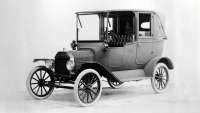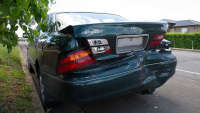We show you how to calculate if a diesel car will save you money or not.
At first glance buying a diesel appears to be a no-brainer. After all, they are more fuel-efficient than a similar model powered by a petrol-slurping engine, so they must be a good buy. But are they? The answer is: not necessarily.
If you just go by the fuel consumption figures of a small to medium car a diesel typically consumes around 15 per cent less fuel than a similar car with a petrol engine. Sounds great, but some of the gloss is lost when you arrive at the pump to fill up and realise that you have to pay a premium for diesel fuel, which on current prices is about 10 cents per litre.
Add that to the premium you paid when you bought your new car, which could be as much as $3000, and the diesel advantage isn't what it appeared. Doing the maths you come to the conclusion that you could have to drive as much as 300,000 km before you start to show any savings.
Add to that the extra costs of servicing a diesel and a petrol engine begins to look very appealing. The picture changes if you are driving, say, a large four-wheel drive and doing a lot of towing. It's then that the diesel comes into its own with its mountainous torque allowing you to tow heavy loads with relative ease compared to a petrol engine.
At the end of the day it's case of horses for courses and it's important to factor in the sort of driving you will be doing before you leap in.
So, if you're a grey nomad touring the country in large four-wheel drive with a caravan on the back a diesel is the way to go, but if you're battling the masses in the daily grind of city traffic it's probably better to stick with a petrol engine.



.jpg)
.jpg)
.jpg)


.jpg)

.jpg)
 copy.jpg)


.jpg)

.jpg)


.jpg)

.jpg)
Comments